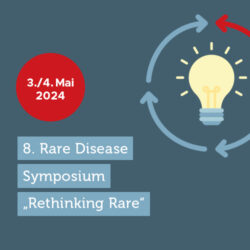Innovationsfonds fördert mit FAIR4Rare die begleitende Evaluation für ein Nationales Register für Seltene Erkrankungen
Der Innovationsausschuss beim Gemeinsamen Bundesausschuss (G-BA) fördert FAIR4Rare als eines von 32 neuen Projekten im Bereich der Versorgungsforschung. Unterstützt wird die begleitende Evaluation des Aufbauprozesses für ein offenes Nationales Register für Seltene Erkrankungen (NARSE).
“Gerade bei den Seltenen Erkrankungen sind wir einrichtungsübergreifend auf digital vernetzte Daten angewiesen. Diese führen die geringen Fallzahlen zusammen und liefern wichtige Erkenntnisse aus Forschung und Versorgung”, erläutert Dr. Josef Schepers, Koordinator von FAIR4Rare an der Core Unit eHealth and Interoperability des Berlin Institute of Health in der Charité (BIH) den Hintergrund des Vorhabens und betont: “Aber nur wenn die Daten auffindbar, zugänglich, interoperabel und wiederverwendbar sind – kurz: den FAIR-Prinzipien entsprechen – können die Erkenntnisse schnell und zielgerichtet zu den so dringend benötigten Therapien entwickelt werden.”
Derzeit läuft die Pilotphase des Nationalen Registers NARSE, das von der Eva Luise und Horst Köhler Stiftung (ELHKS) mit dem Ziel angestoßen worden war, die Versorgung von Patient:innen mit Seltenen Erkrankungen zu verbessern. Beginnend für ausgewählte, potenziell behandelbare ultraseltene Krankheitsformen soll das Register die Sichtbarkeit der Krankheitslast der “Waisen der Medizin” erhöhen. Zudem sollen Patient:innen die Möglichkeit erhalten, sich zu vernetzen und dank besserer Informationen leichter am medizinischen Fortschritt teilhaben zu können.
Im begleitenden, vom Innovationsausschuss geförderten Evaluationsprojekt FAIR4Rare überprüfen die Projektpartner aus Versorgungsforschung, Klinik, Registerbetreibern und Patient:innenorganisationen unter Leitung von Dr. Schepers am Berlin Institute of Health über einen Zeitraum von 30 Monaten, inwiefern das Register auf Akzeptanz bei den Nutzenden trifft und welche Weiterentwicklungen notwendig sind, um den besonderen Belangen von Patient:innen mit Seltenen Erkrankungen gerecht zu werden. Wichtig sind dabei neben der Befragung von Nutzenden des Registers auch der Vergleich mit Datenbeständen aus der Medizininformatik-Initiative (MII) sowie dem gut etablierten Deutschen Mukoviszidose-Register.
“Die begleitende Evaluation ist für den Erfolg von NARSE essentiell”, unterstreicht Prof. Dr. Annette Grüters-Kieslich, Vorsitzende der ELHKS. “Mit dem Wissen, was in der Testphase gut funktioniert hat und wo wir noch besser werden können, werden wir das Register optimieren und erfolgreich auf weitere Erkrankungen ausweiten können. Die Förderung von FAIR4Rare durch den Innovationsausschuss ist wirklich eine Entscheidung mit Weitsicht!”
Diese Einschätzung teilt auch Prof. Dr. Christopher Baum, Vorsitzender des BIH-Direktoriums und Vorstand für den Translationsforschungsbereich der Charité. Das BIH strebt an, das NARSE-Register im Anschluss an die Pilotphase während der Laufzeit der Evaluation zu betreiben und weiterzuentwickeln. Denn Prof. Baum ist überzeugt: “Daten zu teilen ist die Voraussetzung für den medizinischen Fortschritt. NARSE und FAIR4Rare können hier qualitativ und quantitativ einen wichtigen Beitrag leisten, damit Translation im Bereich der Seltenen Erkrankungen gelingt.”
Weitere Informationen zum Projekt NARSE: NARSE – Nationales Register für SE – Eva Luise und Horst Köhler Stiftung (elhks.d



